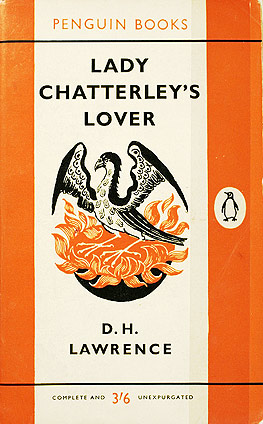Further to Michael’s earlier post.
Frye writing to Helen Kemp, 22 June 1935, from Chicago, where he had visited the World’s Fair:
I have seen some more of the Fair. The Italian exhibit is typical of a Fascist government. You go into a big round hall with nothing in it but posters around the walls, commemorating various aspects of modern Italian industrialism. One has a complete speech of Mussolini’s disfiguring the slate‑blue background. Below the posters are some enormous snapshots of the Forum and similar views in Rome. Back of this hall is a novelty shop full of cheap jewelry and pestiferous salesmen. Some of the work‑‑mosaics and such‑‑is finely done, or appeared so before I retreated from importunate idiots behind the counters, but a trip through any of the big department stores in the Loop would be infinitely more rewarding. I am told they have a good scientific exhibit in the Hall of Science. But Italy! Roma Caput Mundi, as one of their own posters said! And cheap brooches! God!
Then on 24 March 1937, Frye writes to Kemp:
We’re leaving the Vatican until after Easter. I don’t like Rome much—everything is the biggest and loudest in the world, and the Mussolini mentality is stampeding everything. I wish I hadn’t come to Rome—I’d sooner have stayed in North Italy. Still, it’s all very good for me. Of course Mussolini came back from Libya the day we arrived and Rome was a riot of flags and soldiers, which may have prejudiced me [Mussolini had paid a twelve‑day visit in March 1937 to Libya, where he had opened a new coastal highway to the Egyptian frontier]. Still, the same sort of mind put up the Colosseum and St. Peter’s. And even Rome wasn’t as patriotic as Siena, which must have had at least a thousand pictures of his ugly mug on the walls.
Then on 5 April 1937 he writes to Kemp:
I forget exactly when or what I wrote last, but I was doubtless in Rome, registering dislike. Rome is horrible. I wasn’t quite prepared for the national monument to Victor Emmanuel II, but after I’d seen it it fitted in. Rome built that Colosseum barn, Rome built St. Peter’s with its altar canopy a hundred feet high and its elephantine Cupids in the holy‑water basin, Rome built that ghastly abortion already referred to, Rome produced a long line of tough dictators and brutal army leaders and imbecile Caesars and Mussolini. What Prussia is to Germany, what Scotland is to Britain, that Rome is to Italy—sterile as an egg and proud of it. Romans. Romans stare and peer at you hostilely and sulkily in the streets where north Italians are merely interested in you; Rome is full of Germans where Florence is full of English and Americans; Rome gave me a disease that felt like the seven‑year itch but is gradually wearing off; Rome stunk; Romans gyp you; Romans break out in a rash of flags the day you arrive and welcome the return of their prodigal son Mussolini.
28 April 1937, from Florence:
It was hard to get out of Florence, though not so hard after the stinkers arrived. I believe they refer to themselves as Alpini—a regiment of Alpine soldiers, mostly war veterans, who came to Florence to get drunk. Still, they were harmless enough. We went out with a girl in our pensione who spoke English very well and met one of them in the Boboli Gardens. They sell these huge bronze plaques in Florentine art stores—you can buy one of the Pope for 3 lire, one of Jesus Christ for 5 lire, and one of Mussolini for 10 lire. This man had one of Dante. She asked him if he liked Dante and he said no, he’d never heard of Dante, but he had to have some souvenir to take back from Florence. . . . The rapprochement between Italy & Germany is being played up for all it’s worth—you see pictures of Hitler everywhere, Italian & German flags beside each other in posters, and anti‑Semitic books in bookstores. Of course the Italians made a great fuss over their Empire—Mussolini’s title is now “Fondatore dell’Impero,” the King is the King‑Emperor, and they’re frantically jealous of countries with bigger empires. There’s a comic newspaper that had a big front‑page cartoon showing a Union Jack over the Houses of Parliament with a big knot tied in one end. Now I’ve run out of paper and am going to the back of page one—the one that starts off with sweetheart—A spectator says, “What’s the idea of the knot?” and his friend says “Oh, that’s just to remind her of her great colonial empire.” Every cat in Italy is pregnant. Well, maybe every other cat—there are an awful lot of cats. They’re more loyal to Mussolini than the humans are—Mussolini announced in one of his speeches that Italians should drink more wine because it stimulates the begetting of children. Wonder why, if he’s always having parades, he doesn’t have one of pregnant women? When I got back to France, where Mussolini was allowed to have a mistress, who shot somebody else for some reason, the mistress was said to have had three hundred pictures of Mussolini in her room. She not only loved Mussolini, she understood him. [The mistress was the French actress, Mlle. Fontanges, whose real name was Magda Coraboeuf. After she revealed her affair with Mussolini to the press, he forbade her to come to Rome; she thereupon shot and wounded the French ambassador, whom she thought was somehow responsible for her predicament, and served a year in prison as a consequence.]



